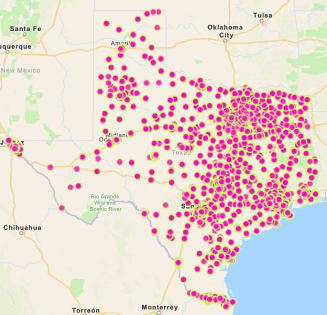What you should know right now about evictions in Texas
You may be one of the countless Texans currently in jeopardy of losing their housing. With more than 2 million Texans who have filed for unemployment during the pandemic, experts are predicting a nationwide increase of homelessness by 40-45% as a result of COVID-19. While these numbers are staggering and quite honestly heartbreaking, there are ways to protect your housing during these challenging times.
We have outlined below, through a culmination of Texas Homeless Network’s research, the information we think you should know right now about how to protect your housing.
First, are you protected?
It is important to learn if your housing is protected from eviction under the current CARES Act which supersedes any Texas ruling. The CARES Act applies if your landlord has a federally backed mortgage or participates in a federal assistance program. If they do, they cannot proceed with evictions at this time.
Thanks to the work of Texas Housers along with BASTA Austin and Texas RioGrande Legal Aid Texans now have access to utilizing the CARES Act Tenant Protections In TX map tool. In addition to the English version of the map, the creators also created a Spanish version.
If you view the map and find that your property is not listed, it does not definitively mean your property is not covered. You can also view NLIHC’s tool and check for your property there as well. However, please note that neither database includes single-family rentals with federally backed mortgages and may exclude some multifamily properties.
If your housing is shown as being protected, here are the things you should know:

The CARES Act gives tenants the following protections until July 25, 2020:
- Landlords may not give notices to vacate for nonpayment;
- Landlords may not file nonpayment eviction cases; and
- Landlords may not charge late fees.
In addition, after July 25, landlords must give tenants at these properties an additional 30-day Notice to Vacate before they can file an eviction for nonpayment.
If your property is not on the lists:
If your address is not in those databases either, you still might be protected, so make sure to ask your landlord. Some cities, such as Austin, are requiring landlords to tell their tenants if they are covered under the CARES Act provisions within a 5-day period following a written question.
However, if you are facing an eviction that you believe is unjust or against the law you can apply for legal assistance with Lone Star Legal Aid here.
While you wait for legal help, here are some things to know:
- Be sure to pay attention to the notice from your landlord. A notice to vacate is different from an eviction order. The notice to vacate informs renters that they must leave the property within a certain amount of time. The notice to vacate also states why the tenant was asked to leave.
- After your notice, you are expected to leave within a certain number of days or weeks. If you do not, the landlord can file an eviction petition.
- Once the petition is filed, a hearing can be scheduled. Only after this legal proceeding can a judge issue an eviction order or a writ of possession. After the eviction order is posted, a tenant must leave the premises.
Legal experts urge that you read and respond to the requests during each step of the process. Bear in mind that you are not required to leave your housing until after the judge issues the eviction order. However, at the eviction hearing, you have a chance to plead your case of staying in your current residence. If you are unresponsive throughout the process, it will make it harder to sway the judge in your favor.
We suggest you read the full article posted with CBS DFW that gives even more information provided by Lone Star Legal Aid if you are currently facing eviction.
Lastly, it’s worth noting that Texas Homeless Network’s staff members are not eviction or housing justice experts, but we hope that this blog post gives you information that is useful to explore your options during this difficult time. It is our goal to provide our communities with the information needed to ensure that we make homelessness rare, brief, and non-recurring.
If you have feedback or insight into this post, don’t hesitate to reach out with questions, comments, or concerns to our Statewide Initiatives staff.


You must be logged in to post a comment.